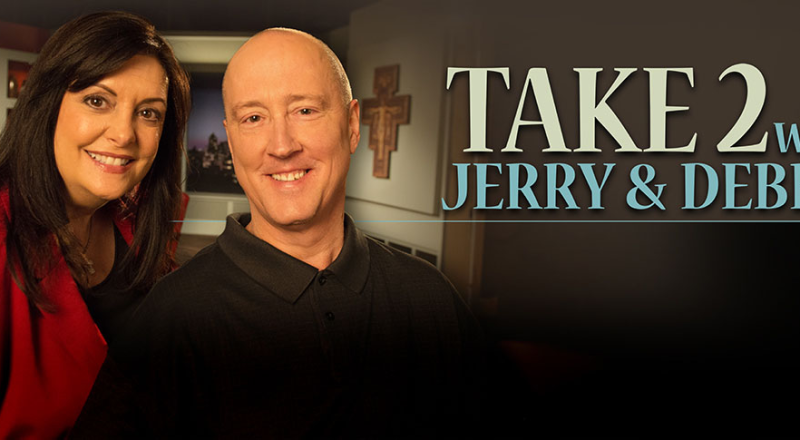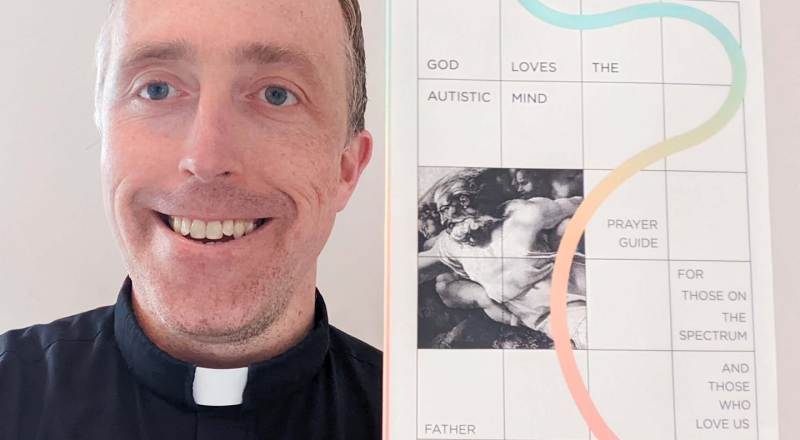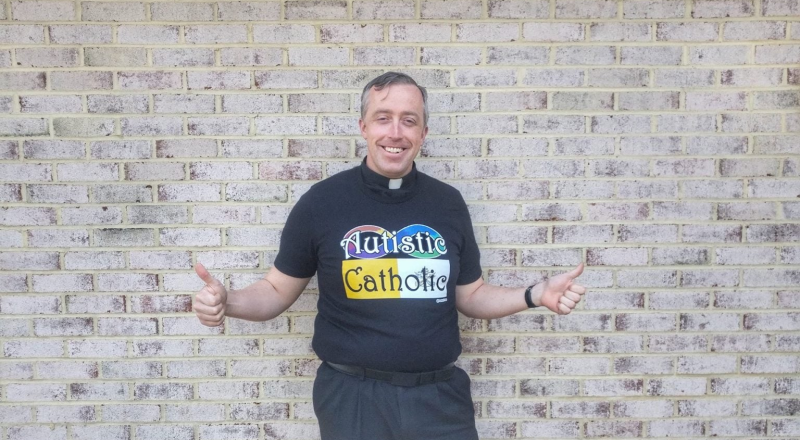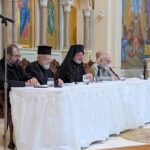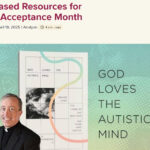Autistics pray differently and experience God differently. The classical spiritual authors talk of different stages. I think our stages are slightly different: the first parts can be more difficult for us, while the latter parts can be more challenging. This is what I call the autism prayer hump. I explain why this is and how our psychology affects our prayer in this video.
As I recorded this 2 years ago and only post it now, I think a bit of background might be helpful. A while back in 2020, Aimee O’Connell and Fr. Mark Nolette from Autism Consecrated planned a conference on autism and theology in upstate New York with herself, myself, Grant Macaskill, and others. Unfortunately, what happened to many in-person events in 2020, happened to this as well: It was canceled. I had already written my talk so I recorded it back then. However, as this talk and a chapter of my book cover the same theme, I thought I would release it now as part of the book promotion. If this topic interests you, please buy my book I go more in-depth on this topic there. I also cover other points about autism and prayer.
Here’s the video and I have some summary notes below.
The Autism Prayer Hump notes
[These are the notes I made for the conference: they are close to a transcript but are not a transcript.]
What is happiness? Often we reduce it to a simple positive emotion of the moment but it goes much deeper. We experience contentment when we possess or experience some good. I feel happy satisfaction holding an ice cream and consuming it, for example. But the more profound the good, the more satisfaction one feels. For example, although my dad would enjoy an ice cream, it would seem odd if he was completely overwhelmed and crying with it in a way similar to the way he was at my sister’s wedding. The satisfaction of seeing your daughter marry an honorable man is a far greater good. Ultimately, the deepest reality we can have is our relationship with Jesus. In fact, the wisest Christian theologians like Aquinas and Augustine generally speak of this possession of the highest good as happiness.
To get close to that happiness here on earth, we need to develop a relationship with God beyond saying a few prayers. This is a deep prayer life. Every single human ever existing is called to this. We autistic Christians are called to this like others.
There are tons of books on the spiritual life describing this process, but as far as I can see, none address a specifically autistic problem here, what I will call the prayer-hump. There are two reasons that might slow us down in the beginning stages of prayer, but once these are overcome, I think we on the spectrum can sometimes be faster in moving forward in prayer. This hump will be the focus of this talk.
The first issue causing the hump is unavoidable while we can avoid the second issue if we explain things differently. I also want to note that what I say here applies generally but not necessarily to each case. Even though we are a small portion of the population, the evidence seems to say there is more variation in our thinking than in the other 98% of the population.
Theory of Mind
The first issue is theory of the divine mind. For those unfamiliar with the term, theory of mind is how people subconsciously determine what other people are feeling or thinking. For example, how do I grasp what you are feeling from looking at your face? Most people do this subconsciously but not those of us on the spectrum. This is like a native language for others but a second language for us. Thus, it is a struggle for us. The question then arises how we intuit or understand the mind of God.
Most people when they pray begin with a bit of theory of mind in intuiting what God thinks. However, for we autistics, this is much more difficult. On an article on why so many autistics become atheists, Matthew Hutson even claims, “Belief in God depends on theory of mind.” As much as I disagree with his conclusion implying that atheism is right, I can definitely say that part of developing a prayer life involves understanding what God’s mind.
This leads to some complications for us regarding belief in a personal God. If we have trouble understanding how others feel and care for us, if God is a mere projection of the good we see in others, we would seem to have trouble here. This is a real issue and even Temple Grandin, one of the most famous autistics in the USA, said she believed of God more in a principle and moral code than as a person.
It is normal for autistics to struggle more with this first step past saying a set of vocal prayers. We need to think more directly about what an omniscient God thinks of us while looking down on us from heaven. Nonetheless, I do not think this is insurmountable. First, on a deeper level, we are united to God by the theological virtues through baptism. However, it seems that some aspects of the personal relationship with God would be like personal relationships with other humans. We need to dedicate more effort to this moment of prayer.
Emotional Explanations
We autistics tend to express and describe emotions differently. We also tend to prefer rational to emotional explanations of things. For example, the book that helped me out most as a teenager was Kreeft and Tacelli’s Handbook of Christian Apologetics, which after an introductory chapter starts with 20 rational proofs for God’s existence over 40 pages.
Yet, how is prayer beyond attending Mass or saying specific vocal prayers often presented in Church? Emotionally, almost in a melodramatic way. If we look to how we present it to those at the age when one often sets on this path – tweens or early to mid teens – and we see most presentations going beyond emotional to melodramatic.
I think we can help avoid this part of the prayer-hump by a rational explanation of the faith. In this explanation, it is important to use a lot of inductive reasoning, not just deductive. While most neurotypicals tend to go from the general concept to the particular, most autistics tend to go the other direction.
Fast-lane prayer
However, once we get over the prayer-hump, our autistic way of thinking can accelerate our prayer, rather than slowing it down like happened in the prayer-hump. Speaking to God should become easier than speaking to other humans. I think there are three ways this can happen: wordless communication, the lack of need for the senses and long-term memory.
God does not need words. Communicating with other humans, we need to transfer out thoughts into words, say those words, the other needs to hear them and understand them according to their thoughts. Most humans usually do this automatically and assume that the other’s thoughts are the same as ours. This doesn’t always work out even for neurotypicals. This process is often particularly challenging for most autistics. This is especially true with feelings where we can have trouble even identifying our own feelings clearly. Alexithymia.
I feel a kind of malaise and dissatisfaction but is it sadness or anger or stress or anxiety or… Since God is, as Augustine says “higher than my highest and more inward than my innermost self,” (Confessions III, 6, 11) he knows our thoughts. As he is inward and relies not on outward communication, he can also communicate his thoughts directly to us without the mediation of human language.
I don’t know if telepathic communication exists between men, but I know it exists between God and man. As God is able to read my mind, my prayer can stay in wordless concepts and images without ever having to worry about speaking and listening as we communicate both ways in pure thought. The thoughts I have in prayer and the thoughts God transfers to me are often difficult to put into words.
St. John of the Cross describes a similar lack of words – and at times even images – as we approach divine union. He states, “All these imaginings must be cast out from the Soul, which will remain in darkness as far as this sense is concerned, that it may attain to Divine union; for they can bear no proportion to proximate means of union with God.”
We autistics who often struggle to translate what is in our mind to words are in a situation like others moving to divine union. In fact, once over the hump, we seem particularly poised as we don’t automatically go into that process of turning thoughts to words to sounds and back but are often satisfied staying with the mental reality of ideas.
Second, as we advance in prayer, senses become less important. A large part of autism is that our filters between our senses and our conscious brain are different from the standard ones that average people have. This is what causes all our sensory issues.
As senses become less important, as we approach deeper spiritual union which all the spiritual masters speak of, we can concern ourselves less with sense interpretation.
Finally, most autistics tend to have above average long-term memory. I might not remember a quick thing but if it gets into my medium to long-term memory, I never forget. Reading different descriptions, many autistics are like this. I could still pass exams for tests I did 15 years ago without studying. In the seminary, I even got the nickname Schneider-pedia as I seemed to remember every fact. In my prayer, I can often bring up different details from various parts of the Bible or from different spiritual authors with little effort. Most of these I have just memorized by repeated readings, not through effort.
Conclusion
Every autistic person, like every other person, will experience prayer differently. God speaks to us as we are. That means that God speaks to me – and maybe to you – autistically. We should not feel bad about this. St. Paul noted in 1 Corinthians 9:22, “I have become all things to all men, that I might by all means save some.” God meets us where we are even more than St. Paul met others where they were.
In God meeting us where we are autistic individuals, we need to realize the prayer-hump. We often struggle with the beginning of prayer with emotional aspects and theory of mind issues, but once we get past that, we can accelerate on the prayer super-highway. This talk was adapted from part of a book I recently signed a contract to write for PaulinePress, tentatively titled God Looks on the Autistic Mind with Love. If you are interested in prayer for autistic individuals, please keep your eye out for this book coming soon. I also have a bunch of videos and blogs on autism and Catholicism if you want to check me out at Autistic Priest on YouTube, Facebook or Twitter.
If you found this interesting, please consider buying my book. It coves this topic more in-depth and a lot of related topics.



